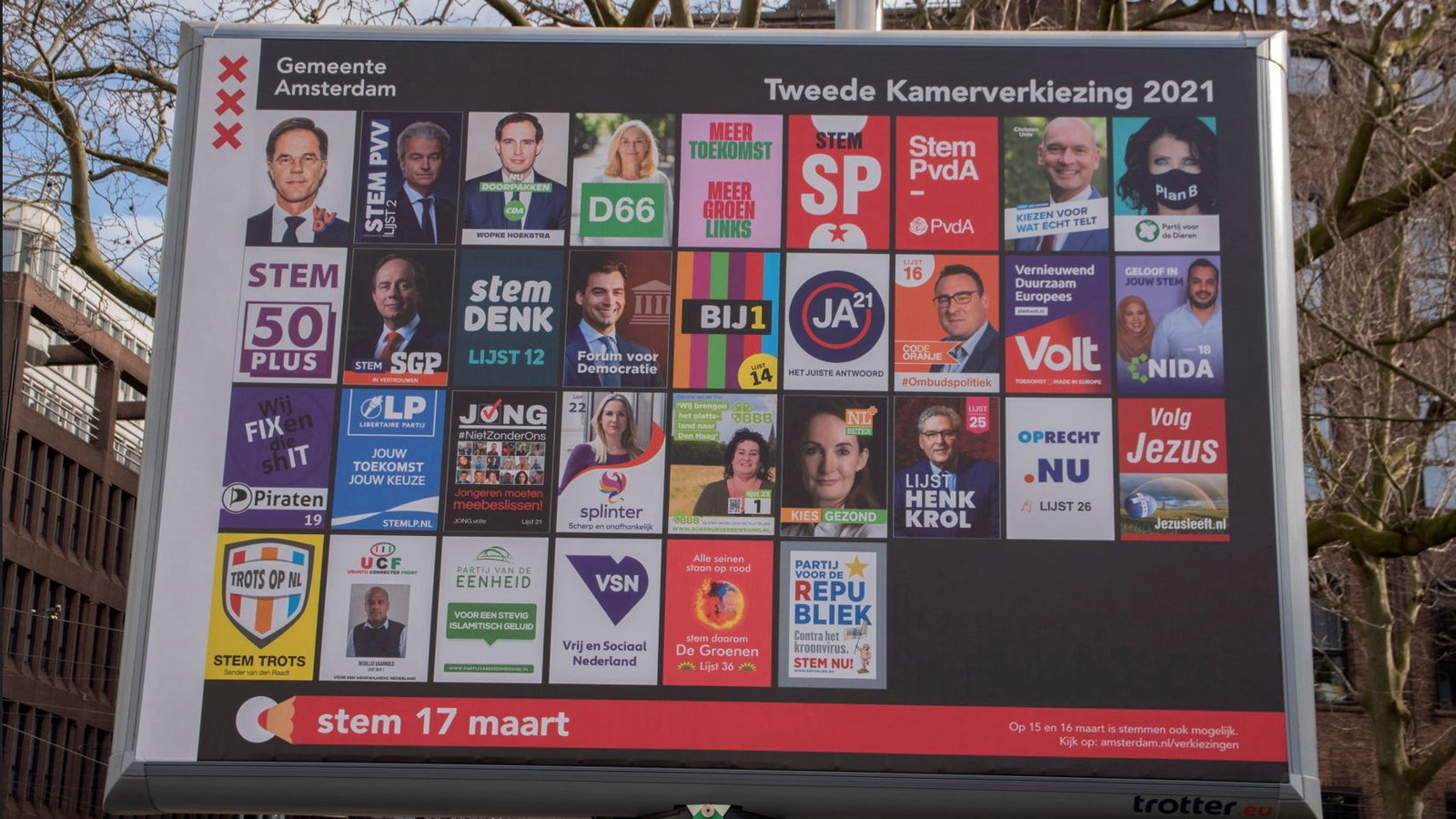
Advertenties van politieke partijen

Advertenties van politieke partijen
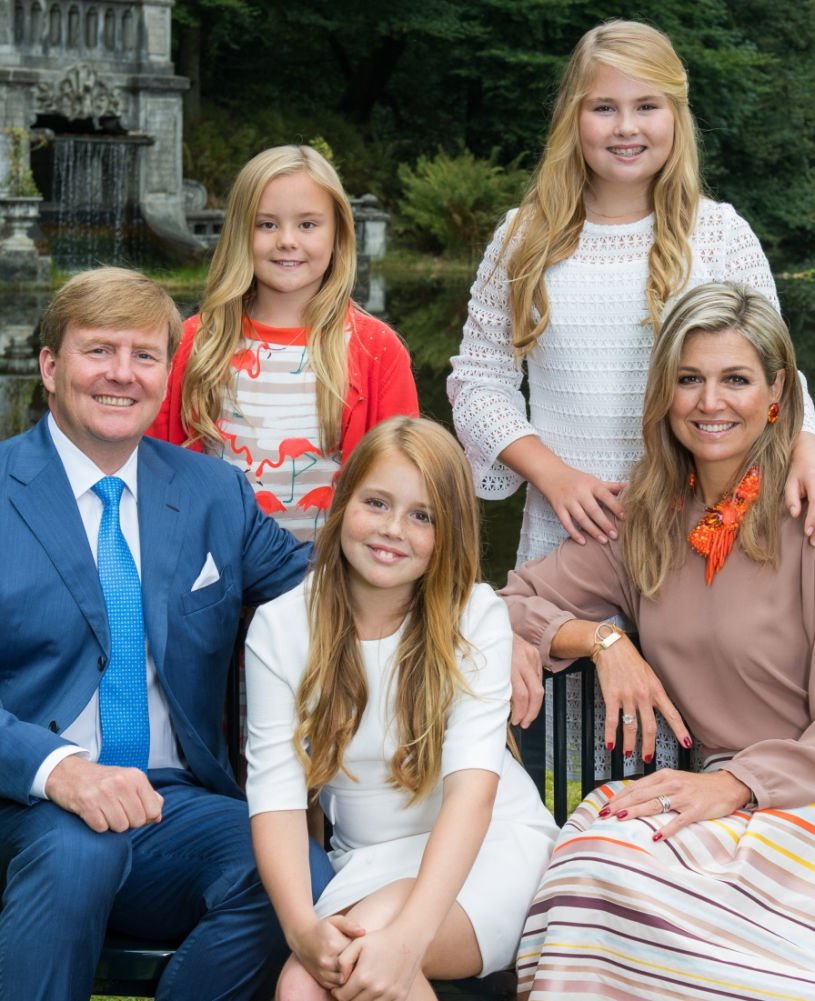
King Willem-Alexander and Queen Maxima and their children
a few videos:
English Arabic Turkish Ukraine Polen Bulgaria Romania Dutch
If your language is not supported: these are the subjects
1. The Netherlands is a democracy. That means that the inhabitants determine who runs the country.
2. There are different political parties. Voting determines who the largest parties are.
3. After the election, the largest parties consult with each other to form a government.
4. The government runs the country and is accountable in the so-called “Tweede Kamer”.
The members of the “Tweede Kamer” are the representatives of the political parties.
5. The head of government is the Prime Minister.
6. Here we see King Willem-Alexander, Queen Maxima and their 3 daughters. The king does not meddle in politics.
7. The board that governs a municipality, is established by election.
8. The chairman of the board is the mayor.
9. The board presents its plans to the city council. The other members are the aldermen.
<<<
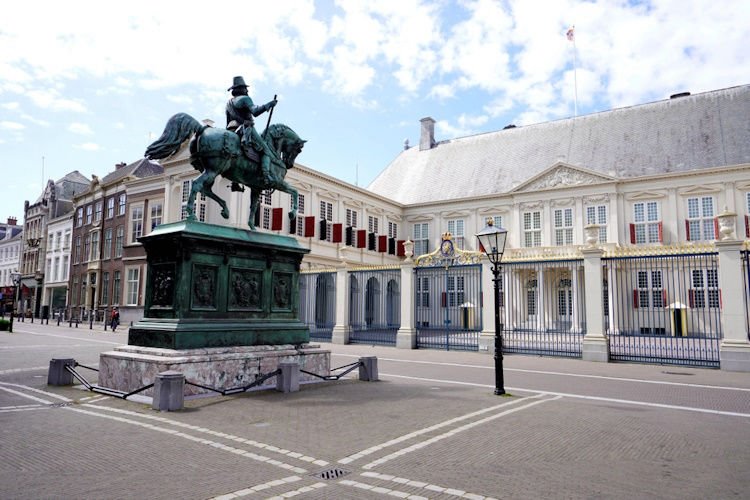
Palace in The Hague
The Dutch government consists of the king, prime minister and ministers. Prime Minister Mark Rutte is the leader of the ministers, each of whom has its own secretary of state. Together they form the cabinet.
A kingdom
The Netherlands is a kingdom with Willem-Alexander as king, and consists of four countries: Aruba, Curaçao, Sint Maarten and the Netherlands. The Netherlands is a democracy in which the majority of the people decide what happens.
The king lives in The Hague with his wife Maxima and their three daughters. The king has little power, because the government and ministers make plans and decisions for the Netherlands. Once a year, the king tells the people about the plans of the ministers during Prince's Day in September.
<<<
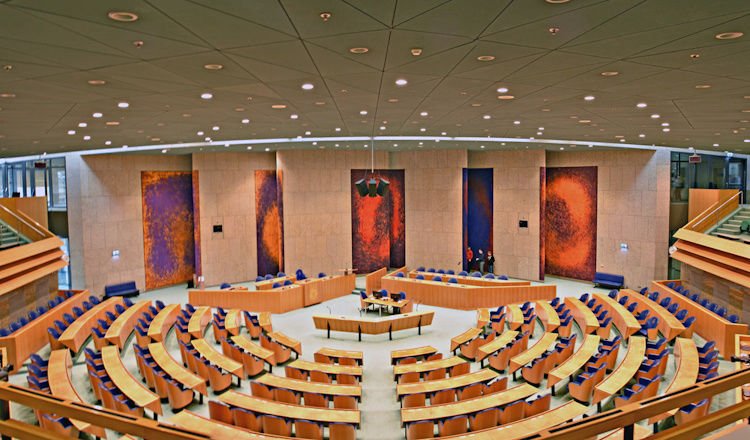
"Tweede Kamer"
The parliament consists of the House of Representatives and the Senate. Every four years, the Dutch are allowed to vote for 150 people who make decisions in the House of Representatives and 75 people who sit in the Senate and monitor the work of the ministers.
New laws are made based on a proposal from a minister, after which the House of Representatives and the Senate vote on them. If both chambers approve it, it will become law. The king must sign the law.
The Netherlands has 12 provinces in which people can vote every four years for the representatives.
<<<
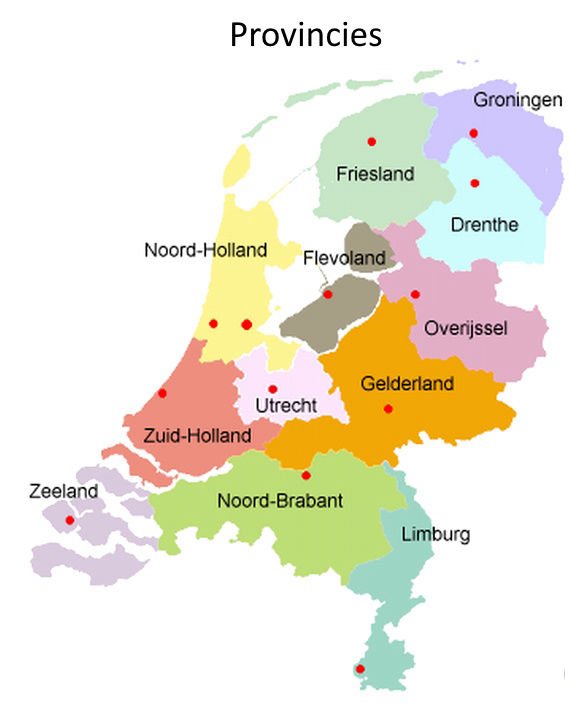
the 12 provinces
The information you provided is mostly accurate, but there is a significant error: The Netherlands does not have just 2 provinces; it has 12 provinces. Let me correct the text for you:
Province
The Netherlands has 12 provinces. In lesson 1, we introduced these regions. Each region is ruled by Provincial Councils. Such councils decide on matters such as roads, the environment, and construction projects. The King's Commissioner is the head of the provincial administration.
Municipality
A municipality is a city or village and has its own municipal council that people can vote for every four years. The city council decides on matters such as houses, schools, and roads. The mayor is the leader of the city council.
The Netherlands is a member of the European Union in which countries in Europe work together. The European Parliament is elected every five years by people in the European Union and makes agreements on matters such as the economy and security.
<<<
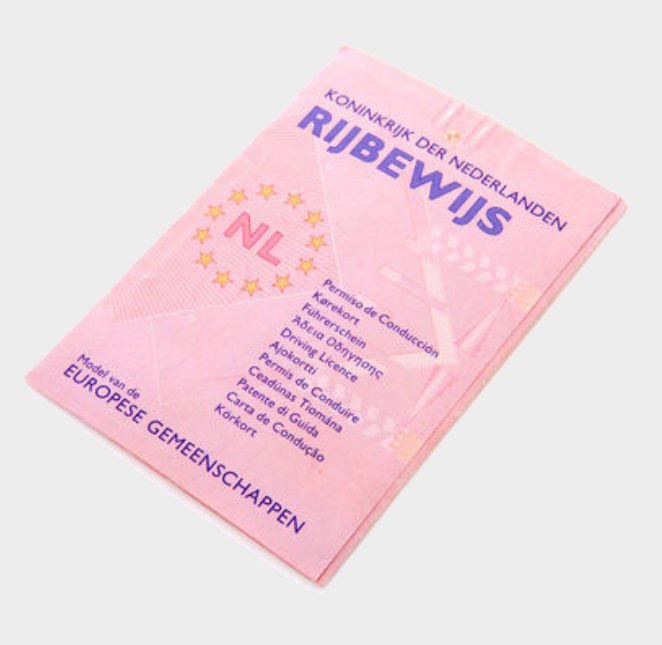
drivers licence
What do you have at a town hall?
Paperwork: for Life Events:
Register a baby's birth.
Get papers for marriage.
Report someone's death.
Get Permits:
Get permission to build or change a house.
Start a business.
Organize big events or parties in public places.
Money Matters:
Pay taxes for your house or property.
Set up or pay for city services like water or trash collection.
Ask Questions or Complain:
Talk about problems or ask questions about town services.
So, a town hall is a place where people can do many things related to the town they live in.
<<<
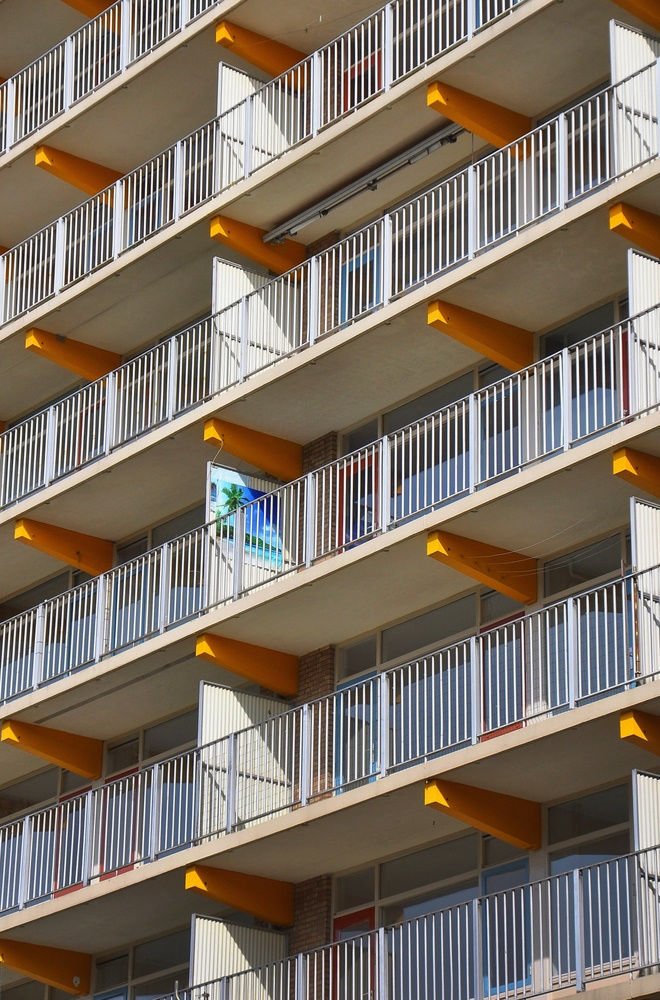
Housing
In the Netherlands, municipalities (gemeenten) play a crucial role in the day-to-day lives of residents, including refugees, statushouders (refugees granted asylum status), and work immigrants. Here's why municipalities are especially important for these groups:
Refugees:
Housing: Upon receiving a residence permit, refugees are assigned housing in a specific municipality. Municipalities are responsible for providing suitable housing for a certain number of refugees, proportional to their population.
Integration Courses: Municipalities often facilitate or oversee integration courses, which help refugees learn the Dutch language, culture, and society.
Social Support: Municipalities offer various social services, from psychological support to help with day-to-day tasks, aiding refugees in adapting to their new environment.
Statushouders (Refugees with Asylum Status):
Integration Requirement: Statushouders are required to integrate into Dutch society. Municipalities guide them through this process, ensuring they attend necessary courses and fulfill other requirements.
Employment and Education: Municipalities assist statushouders in finding jobs or educational opportunities, often liaising with local businesses, schools, and vocational training centers.
Financial Assistance: Those who cannot support themselves immediately might receive financial assistance, managed at the municipal level.
<<<
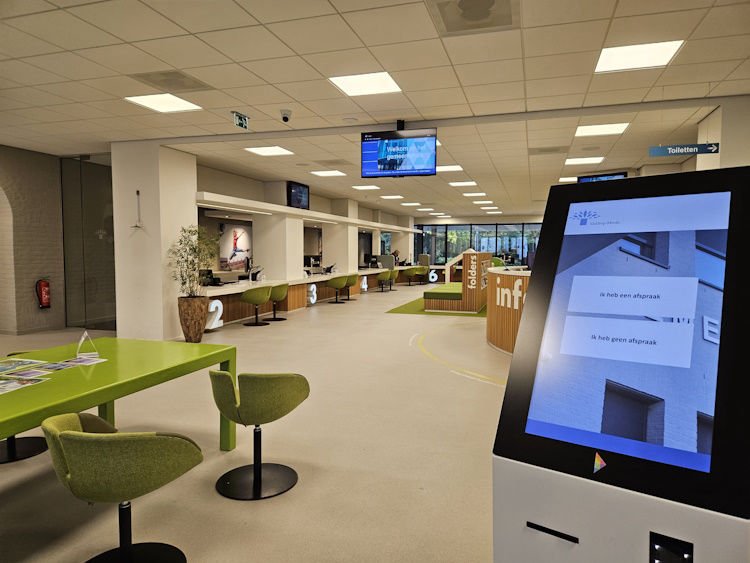
Image Description
Work Immigrants:
Residence and Work Permits: While the national government handles these permits, municipalities provide essential local registration and other administrative processes work immigrants need.
Local Services: Work immigrants, like all residents, benefit from municipal services, from public transport to healthcare. Understanding and navigating these services is essential for their well-being and successful integration.
Community Integration: Municipalities often organize events, workshops, or information sessions catering to the immigrant community, ensuring they feel welcomed and become part of the local community.
In essence, while the national government sets overarching policies, it's the municipalities that implement many of the practical aspects of these policies, making them vital for the successful integration and well-being of refugees, statushouders, and work immigrants.
<<<
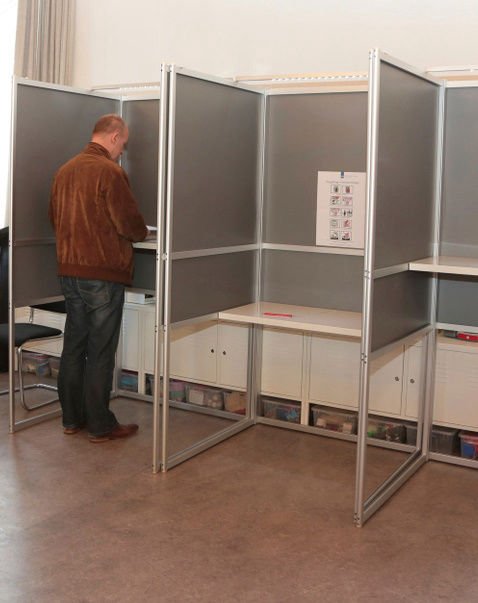
voting
Examples of political parties:
• VVD: freedom for everyone, better economy, work for everyone.
• PVV: fewer foreigners, less cooperation with Europe.
• CDA: family is important, Christian faith.
- BBB: mid and a little bit to the right. Originally founded by farmers;
- Nieuw Sociaal Contract: aiming at a new structure for
• D66: democracy is important, education is important.
• BBB: Boeren-Burgers-Bewegen: a popular party that originated from farmers.
• GroenLinks: environment is important, rich people have to pay more taxes, equal opportunities.
• SP: government should take good care of the poor and sick, less cooperation with Europe.
• PvdA: rich and poor people more equal, rich people have to pay more taxes, education.
• CU: rules from the Bible, against abortion, environment and family are important, care for the poor.
• Party for the Animals: animals and the environment are important.
• 50Plus: taking good care of the elderly.
• SGP: Christian, we must live by the Bible.
• THINK: everyone has the same rights (especially Turks and Moroccans vote for this).
Left parties want to narrow the difference between rich and poor people. Rich people have to pay more taxes. The government must take care of poor people, the benefits must be higher.
Right-wing parties believe that people should take care of themselves and that rich people should not pay a lot of taxes.
Progressive: means that society has to change.
Conservative: means not many things need to change.
<<<
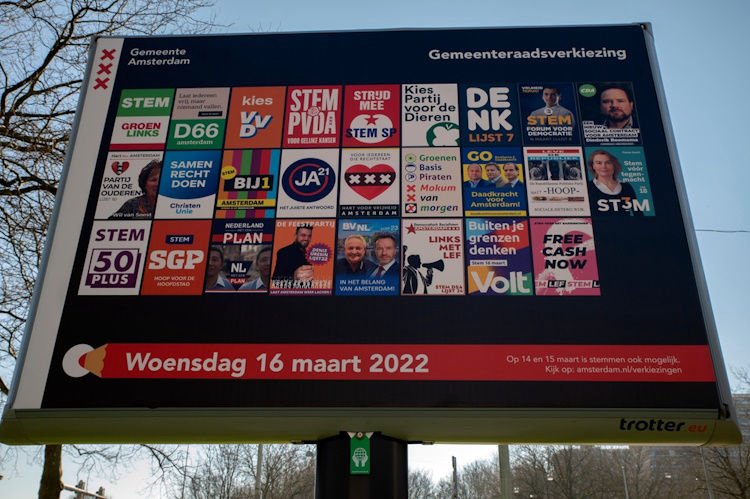
Voting
1x in the 4 year for : Parliament (150 ministers to elect) (NL nationality, 18+)
1x in the 4 year before : Provincial States in every province (NL nationality, 18+)
1x in the 4 year before : Local council (every resident by the local authority 18+, or 5 year in NL) 1x in the 4 year for : Water Authority (people That himself busy to hold of water in The Netherlands 1x in the 5 year before : European Union (resident by EU of An EU nationality, 18+)
<<<
Mobirise html web maker